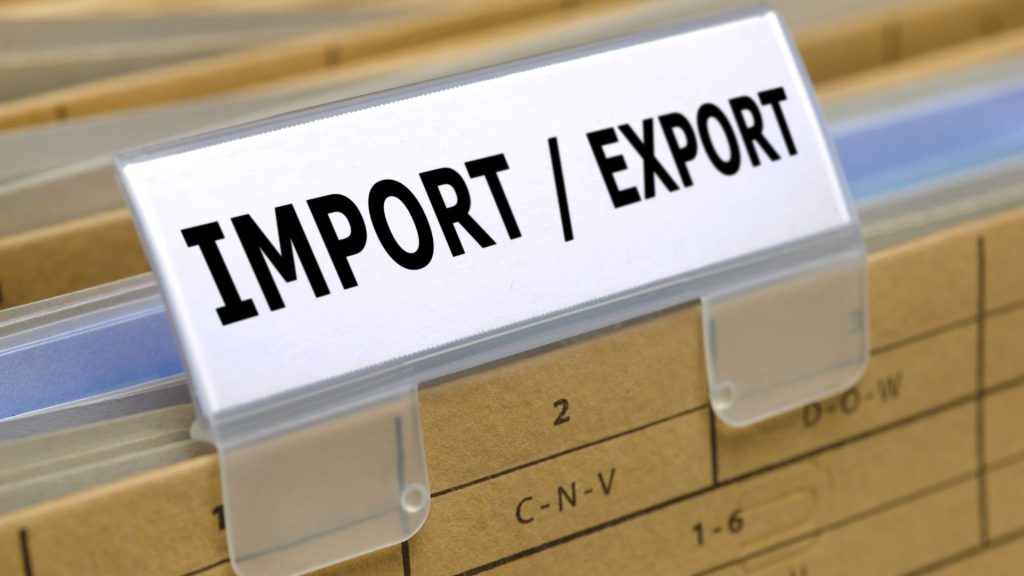What are imports and exports? In the realm of international trade, imports refer to the goods and services brought into one country from another, while exports denote the goods and services a country sends out to foreign nations. These transactions form the backbone of global commerce, allowing nations to access resources, products, and expertise they might not produce domestically, and in turn, share their own unique offerings with the world.
Imports refers to the purchase of goods or services that were received or brought from abroad across the border. An importer is a person or company that buys goods or services from a foreign country.
Export refers to the act of sending goods or services produced in one country to another country for sale or trade. An exporter is a person or a company that sells goods or services to a foreign country. Export is an essential aspect of international trade and plays a significant role in the economic development of countries.
In both imports and exports, the buyers and sellers are required to comply with import and export-related laws and regulations. They need to ensure that payments for goods or services are made through the financial channel for transparency. Usually, the importers and exporters get involved in financial institutions, such as banks, to initiate and process the import and export documentation and payments.
An importer must open a letter of credit, also known as L/C, with its local bank. A bank’s involvement in opening the import L/C increases the credibility of the import and export transaction going to happen between the importer and exporter.
What are Imports and Exports?
Imports and exports involve different currencies. Therefore, imports and exports play a significant role in the country’s overall gross domestic product or GDP. Excess imports lead to an outflow of foreign currencies, which puts a burden on the foreign currency reserves maintained by the country to meet contingencies.
On the other hand, excess exports play a very positive role in increasing the reserves and growth of the GDP. Government authorities develop and implement policies that promote the culture of exports and discourage excessive imports. The economies of export-led countries flourish, contributing to their citizens’ welfare in different forms.
Import and Export Requirements
Authentication: The exporter, residing in another country, prepares and shows the export documentation, along with the import and export terms, to its local bank, for authentication purposes.
Legitimacy: The exporter must ensure that they will trade only with legitimate importers to avoid the risk of providing goods and services to criminals, like money launderers.
Identification and Verification: The legitimacy of a transaction and trade parties involved must be proven by identifying and verifying them before onboarding and processing their trade-related activities and transactions.
As criminals try to find different avenues to transfer their illegal funds or black money from one location to another, they also try to explore trading businesses as a tool to transfer or hide their illegally earned money. Due diligence and KYC ensure that criminals, including money launderers and terrorists, are not on-boarded as trading customers.
The bank’s involvement allows the importers and exporters to comply with local and international payment terms or foreign exchange laws and regulations. Government authorities, through the central banks, issue foreign exchange-related laws and regulations that local banks are required to follow; therefore, they ensure that trade-related activities are performed as per the applicable regulatory requirements.
Final Thoughts
In the intricate web of international trade, the processes of importing and exporting goods and services stand as twin pillars underpinning the economic health of nations. Both involve meticulous adherence to a spectrum of regulations, underscoring the critical role of financial institutions in ensuring compliance, transparency, and legitimacy. While imports and exports profoundly influence a country’s GDP, the balance between them is paramount; unchecked imports can drain foreign currency reserves, whereas robust exports bolster them.
The pivotal role of banks, especially in establishing letters of credit, fortifies the trustworthiness of cross-border transactions. As malefactors seek to exploit global trade avenues for illicit gains, rigorous authentication, legitimacy checks, and due diligence become indispensable shields against such transgressions. Hence, the confluence of government policies, banking systems, and regulatory mechanisms work in tandem to streamline international trade, thereby fostering economic growth and safeguarding the integrity of financial systems.





